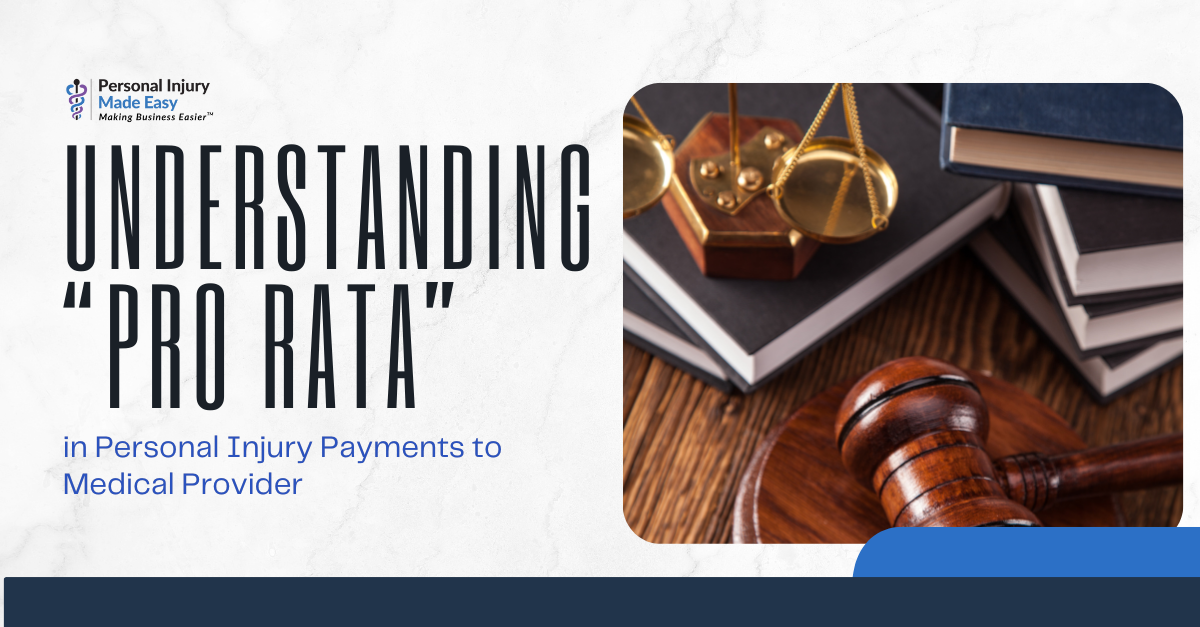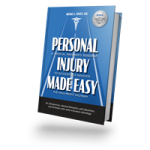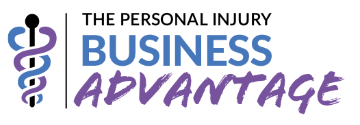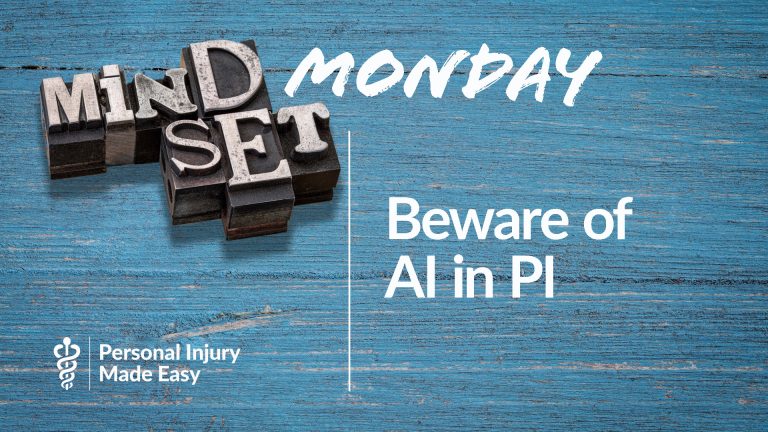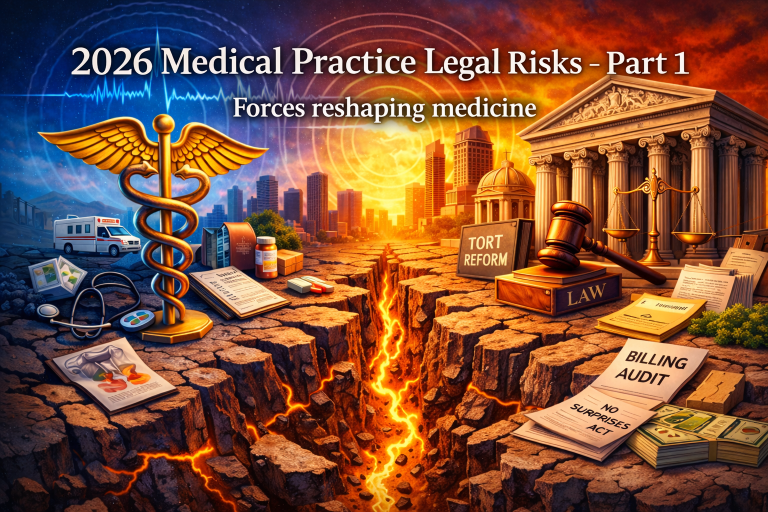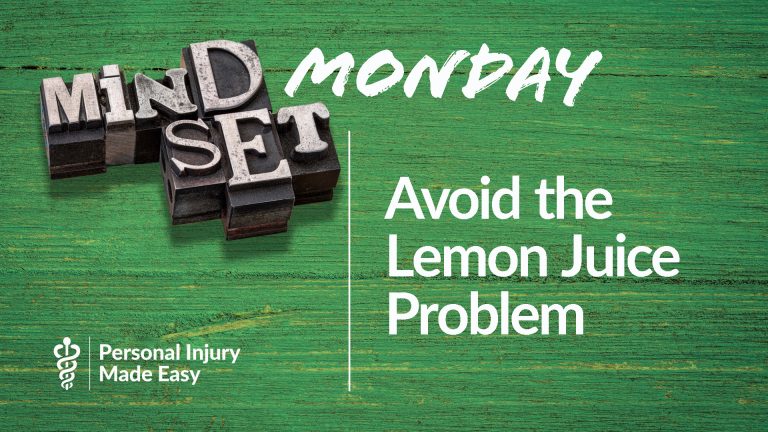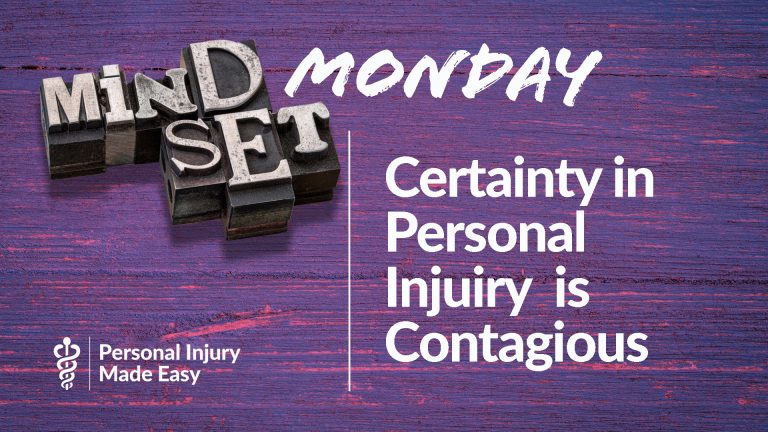
Later, Latest … Too Late for Medical Offices in Personal Injury
Why Timing Isn’t Just Important in PI, It’s Everything
They say timing is everything. And in the world of personal injury (PI) medicine, that’s not a cliché. It’s a warning.
Every week, medical offices miss opportunities that could have grown their business, increased their collections, or reduced friction with law firms. And every week, they overlook threats that if addressed earlier could have been eliminated or controlled before they became costly, demoralizing, or legally risky.
It starts innocently enough:
“We’ll look into that PI protocol next month.”
“We’ll eventually update our lien agreements.”
Or my personal favorite: “Let’s not push that law firm too hard; we don’t want to rock the boat.”
But that boat, it’s already leaking!
It’s already leaking. And pretending you’ll patch it later doesn’t make the water stop rising.
Missed Moments: The High Cost of Delay
Let’s start with opportunity, because personal injury done right, is full of it.
Missed Opportunity #1: Forcing Transparency for Higher Pay
Most providers don’t realize how much more they could have been paid if they had just pressed professionally for transparency for the law firm.
There are ways to ask the right questions and use the right legal tools to discover what’s being hidden. And no, it doesn’t risk the relationship.
In fact, some of the best law firms respect the providers who understand the process and can push back intelligently and professionally.
But wait too long to learn how? You’ll find out after a settlement check arrives… short. And final.
Missed Opportunity #2: Growth Beyond Lawyers
Most medical offices rely too heavily on attorneys for PI patient referrals. That’s like owning a gym and hoping only trainers bring in new members.
What about your patients? What about your professional peers—orthopedists, pain physicians, neurologists, therapists—who are already seeing PI patients?
Learning how to turn those channels into referral engines isn’t optional if you want a stable, diversified PI practice.
But you can’t start building a stronger referral network after your pipeline dries up. Later? Might be too late. At least for all the referrals you could have had.
Missed Opportunity #3: Staff Skills That Drive Profit & Staff Happiness
You’ve got good people. But do they have the knowledge and skills set to track key information in PI cases, follow up with law firms, and negotiate from strength?
If not, you’re losing money, and likely morale.
The difference between a $3,500 chiropractic or physical therapy lien reduction and a $1,500 reduction—or the difference between a small or huge surgical lien reduction—isn’t just $2,000 to the chiropractor or tens of thousands to the MD. It’s the difference between a frustrated staff and one that feels confident and valued.
Train staff now, not after the 10th case where they felt powerless, dejected, and ready to leave.
Delaying Defense: When Waiting Increases Risk
Now, let’s talk about threat. Because threats in PI aren’t always loud. They’re subtle, legal, quiet. They hide in plain sight … until they erupt.
Threat #1: Poor Contractual Bill Protection
Most of you are using lien agreements or letters of protection (LOP) given to you by lawyers. And let’s be honest: who do you think those agreements are designed to protect? Not you!
The right lien agreement, with detailed and specific protections and mandates, is your best spear and your best shield. It sets expectations. It documents rights and obligations. It protects your rights to payment. And it gives you entitlements when breached.
The wrong one? It’s a liability in disguise. You lose your best leverage to get paid on your terms, versus having someone else decide for you.
You don’t want to figure out that you could have been better protected after a case settles, when you get that dreaded lowball offer or the excuse, “It’s confidential,” when you ask for the settlement and disbursement details.
Threat #2: Failing to Professionally Push Back
Too many providers back down when law firms challenge their treatment or billing.
“This was too much care.” “The adjuster said you overcharged.” Sound familiar?
Here’s the truth: many of these attacks are simply tactics to reduce what they pay you. They aren’t based on truth or law, but strategy.
If you don’t learn how to respond, professionally, legally, and confidently, you’ll keep getting pushed back… until you’re pushed out.
Threat #3: Not Tracking the Right Information
Most offices track patient visit counts and balances owed. That’s not enough for success in PI.
You need to track the right things that matter in personal injury: settlement amounts, bill reduction offers and final agreements, the percentage of attorney fees the law firm typically charges, how long they take to settle your average case—or to pay you—and so much more.
Otherwise, you’re flying blind.
Because it isn’t just payment that matters. It’s results, timing, and stress involved.
And the firms quietly bleeding your collections dry or raising anxiety and stress levels?
You won’t even notice until it’s too late to stop it.
Regret Is No Reward
Here’s the bottom line: delay feels safe. It buys comfort. It avoids conflict.
But what it costs you—missed money, missed growth, and increased risk—is far more expensive than any discomfort you were trying to avoid.
Regret isn’t a strategy. It’s a consequence.
The difference between thriving and struggling in personal injury isn’t just what you know, but when you act.
Find the right expert you admire and get the coaching and help you need.
Identify the staff member who’s best suited to lead your PI segment and train them.
Go after the opportunities before they vanish.
Limit the risks before they take your business down.
And do the hard things now, when there’s still time to grow, protect, and fix.
Because “later” might sound like a plan… But “too late” sounds like a loss.




